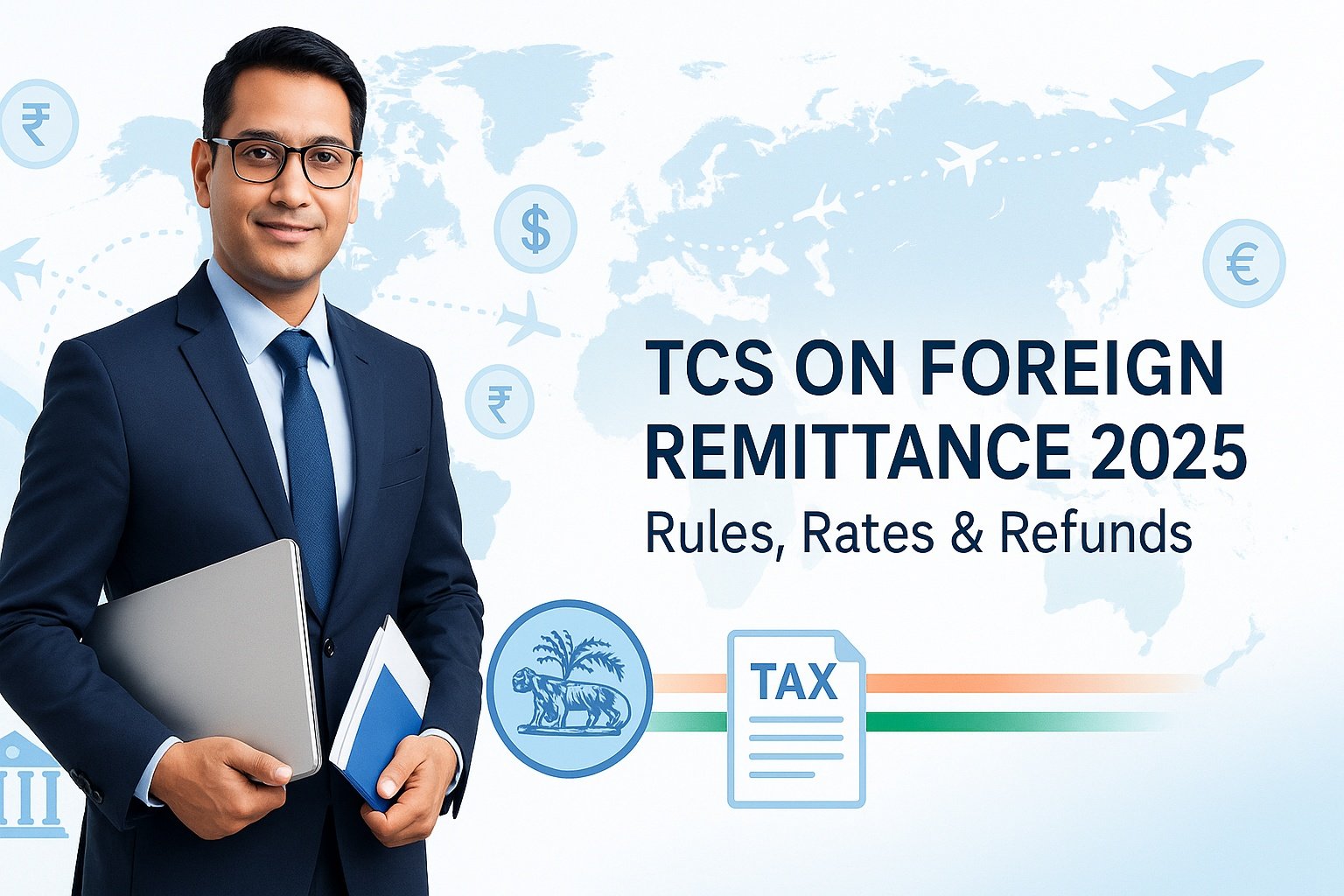NRI Gift Tax rules in India are important to understand, even though the separate Gift Tax Act was abolished in 1998. Today, gifting is treated as “income from other sources” under the Income Tax Act, 1961. For Non-Resident Indians (NRIs), giving or receiving money, shares, jewellery, or immovable property involves both tax provisions and foreign exchange regulations. Because of this dual framework, knowing the implications of NRI gift tax helps prevent unexpected liabilities. Gifts are assessed based on factors such as the relationship between donor and recipient, the value of the gift, and the occasion on which it is given. Understanding these rules ensures compliance and helps NRIs avoid unwanted tax surprises.
NRIs also give to an Indian family or inherit property from locals, but thresholds apply amounts over ₹50,000 from non-relatives typically will be taxable to the recipient. There are exemptions for relatives, marriage, inheritance, or gifts from institutions such as charities. The Foreign Exchange Management Act (FEMA) also regulates cross-border transfers, with regulation on remittances and repatriation. Recent amendments, such as those introduced in the 2023-24 Budget effective from April 2024, deem certain gifts to “not ordinarily residents” (NORs) as arising in India and broaden the tax base. The 2025-26 Budget suggested no substantial amendments to gift rules but revised overall tax slabs, which may affect slab-based taxability of taxable gifts. Proper planning ensures compliance, saves taxes, and promotes easy transfer of assets, especially for NRIs managing dual-country responsibilities.
What Counts as a Gift Under Indian Law
Under the Income Tax Act, 1961, gift means any receipt of money, moveable property, or immovable property without consideration or for inadequate consideration. “Without consideration” implies no obligation to repay or exchange value. Major categories are:
(a) Monetary Gifts: Cash, cheques, bank draft, or direct electronic deposits.
(b) Movable Property: Items like shares, securities, jewellery, motor cars, artwork, sculptures, bullion, or interests in Limited Liability Partnerships (LLPs).
(c) Immovable Property: Residential or commercial buildings, flats, or agricultural property (based on FEMA limitations).
Gifts need to be voluntary and irrevocable. FEMA overlays for NRIs: gifts by residents are permitted but of certain types and limits. Surprisingly, income deemed to arise from such assets in India remains taxable regardless of the destination of the recipients. Government sources confirm that gifts under wills, in anticipation of death, or under some institutions (e.g., universities, hospitals, or registered charities) are handled differently and are generally exempt.

Threshold & Taxability Rules (Section 56)
Section 56(2)(x) of the Income Tax Act considers gifts as “income from other sources” and taxes them if they are in excess of certain limits, and the burden falls on the recipient. The provisions cover residents and NRIs uniformly, but only India-sourced income is taxed from NRIs.
- Threshold: Total gifts from non-relatives exceeding ₹50,000 during a financial year are taxable entirely (not only the excess). Below ₹50,000, the entire amount is exempt.
- Money (Cash/Cheque /Draft): Entire amount is taxable if more than ₹50,000.
- Immovable Property: Taxable if SDV > ₹50,000 (without consideration) or if SDV minus consideration > ₹50,000 and 10% of consideration (inadequate consideration).
- Movable Property (like Shares, Jewellery): Taxable if FMV > ₹50,000 (without consideration) or FMV minus consideration > ₹50,000 (inadequate consideration).
- Exemptions: No tax on gifts made by “relatives” (meaning spouse, siblings, parents, in-laws, lineal ascendants/descendants, and spouses of these), without any limit. Also exempt: gifts on marriage, through inheritance/ will, in contemplation of death, or from local authorities, registered trusts, universities, hospitals, or scholarships.
- Special Note for NRIs/NORs: Monetary gifts > ₹50,000, From April 1, 2024, monetary gifts > ₹50,000 received by NORs from residents are deemed to arise in India and taxable. Tax is slab-based on total income of the recipient.
FEMA Rules & Regulatory Framework
Overseas presents to NRIs are governed by the Foreign Exchange Management Act (FEMA), 1999, based on permissibility, remittances, and repatriation, as opposed to taxation.
- Permissible Gifts: NRIs can accept Indian properties gifted by residents or other NRIs, but it is with restrictions. Residents are allowed to transfer up to USD 250,000 in a financial year (April-March) to NRIs under the Liberalised Remittance Scheme (LRS) for current or capital account transactions such as gifts or loans to relatives.
- Asset-Specific Regulations:
- Monetary Transfers: Foreign currency gifts are not limited by any value from other NRIs; Indian rupee gift to NRO accounts only allowable from relatives.
- Immovable Property: Residential/commercial property acceptable; agricultural land, farmhouse, or plantations prohibited.
- Movable Property: Relatives’ shares/securities up to 5% of company capital acceptable; RBI/government approval necessary in specific industries. Other properties such as jewelry acceptable under LRS quantum.
- Repatriation: Sale proceeds of contributed immovable property may be repatriated a maximum of USD 1 million annually; the excess needs RBI approval. The funds should reach NRO accounts first.
- Restrictions: Prohibited from remitting to FATF non-cooperative nations; loans/gifts cannot be used for sanctioned activities (e.g., real estate trading., chit funds). Cash gif ts in excess of ₹2,00,000 can result in penalties; preferred method is remittance via bank transfers.
- Upgrades: LRS ceilings still stand at USD 250,000 as of 2025 with 2024 upgrades additions allowing remittances to IFSCs for providing financial services. NRIs must adhere to both FEMA and host country regulations.
Taxation Scenarios: Resident → NRI vs NRI → Resident
Taxing depends upon the direction of the gift, relationship, and amount, with the recipient typically liable.
- Resident to NRI:
- From Relatives: Exempt completely for both parties; no charge on giver or receiver.
- From Non-Relatives: Exemption if ≤ ₹50,000; if > ₹50,000, taxed in the hand of the NRI recipient as per his slab (if deemed India-sourced.). No gift tax on giver but he must adhere to LRS USD 250,000 limit. monetary gifts to NORs > ₹50,000 are taxable in India now (after post-2024 amendment).
- Special Cases: Marriage/will gifts exempt; sale of property repatriable up to USD 1 million/year.
- NRI to Resident:
- From Relatives: Exempt unlimited; no tax implication.
- From Non-Relatives: Exempt up to ₹50,000; excess fully taxable in the hands of the resident recipient in terms of their slab of income.
- Special Cases: Gift in relation to marriage, inheritance, or institutions exempted. No restrictions on FEMA remittances for NRIs gifting to residents, but gift income (say, rent) is taxable in India.
In both these situations, the donor is rarely taxed, but documentationis imperative to claim exemption.

Income From Gifted Assets
While a gift received might be tax-exempt, income derived therefrom in India is chargeable under the Income Tax Act on the premise of residential status of the recipient.
- Immovable Property: Taxable income from rent after deduction (municipal taxes, 30% basic deduction); self-occupied (not more than two properties) exempt. Capital gains on sale: Long-term (held for >24 months, including previous owner’s period) taxed at 20% indexed; short-term at slab. Cost basis is previous owners’ cost price or FMV as of April 1, 2001, if prior.
- Movable Assets: Share/mutual fund dividends, interest on fixed deposits/bonds taxable as “income from other sources” at slab rates. Capital gains: Listed shares >12 months long-term (exempt up to ₹1 lakh, then 10%); other assets >36 months long-term (20% with indexation).
- Clubbed Income: Gift to minor child, wife, or son’s wife income clubbed with giver’s income.
- For NRIs: Income from India only (e.g., rent, dividends) to be taxed; DTAA can provide relief for foreign tax credit.
Documentation & Compliance
For smooth transactions and claim exemptions:
- Gift Deed: Required for immovable/movable property under Section 17 of Registration Act, 1908. Signed on stamp paper, witnessed by donor and recipient (with witnesses), and registered. Assists in identifying intent and preventing disputes.
- Vouchers: Maintain bank statements, transfer proof, or valuation reports (SDV/FMV) for gifts above ₹50,000. For cash above ₹2,00,000, use cheques/bank transfers to avoid penalties.
- Compliance Steps: File ITR where taxable; NRIs file ITR-2/3. Report foreign assets in Schedule FA if any. Obtain RBI approval for restricted assets; adhere to LRS for residents.
- Penalties: Non-compliance results in additions to tax, interest (1% per month), or penalty up to 200% of tax evaded.
- Tips: Consult tax experts; use NRO accounts for receipts. Recent 2025 Budget eased TCS on remittances, aiding compliance.
Frequenty Asked Question
In the Income Tax Act, relatives mean spouse, siblings (and their spouses), parents/grandparents (and their spouses), children/grandchildren (and their spouses), and such lineal relatives. FEMA has a more restricted definition: parents, spouse, children (and their spouses), siblings.
No, marriage gifts are exempt in full, irrespective of value or relationship.
Yes, no FEMA restriction, but if from non-relatives > ₹50,000, taxable in resident recipient’s hands.
Exempt fully; consolidate all such gifts in a year.
Immovable: Stamp duty value; Movable (non-shares): FMV or report by valuer; Shares: According to IT Act rules.
No direct Section 56 amendments; however, new tax slabs can affect taxable values, and 2024 NOR gift deem rule carries forward.







